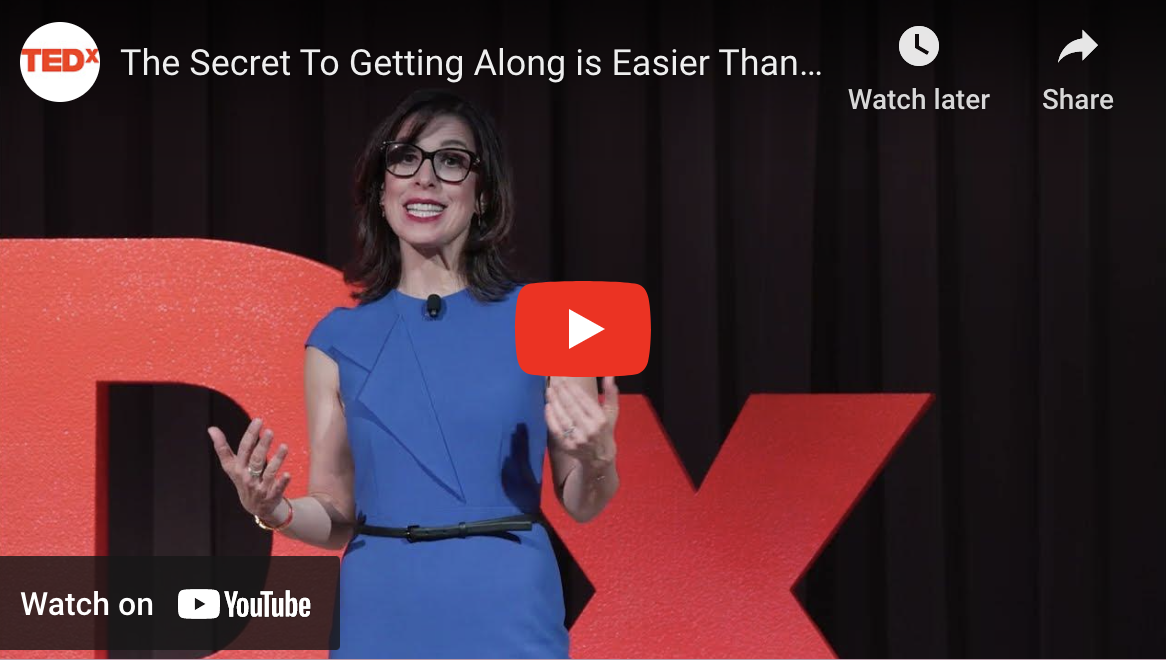I know from firsthand experience that it’s easy to have our days become taken over by the expectations and pressures of others — and parenting can be tricky in and of itself whether it’s the first time, fifth time or whatever life throws us.
Co-parenting definitely throws things for a curve because you are navigating not only your child’s development, daily activities and wellbeing — but a changed relationship (or lack of) that can take its emotional toll in many ways. Co parenting with a narcissist can feel downright impossible.
When dealing with a co-parent who is narcissistic, it’s both:
hard because it feels like you’re the one who has everyone’s best interest at hand and it is easy to feel small and feel angry
Working through a variety of emotions and areas for you and your child(ren) is key to co parenting with a narcissist. To help manage the common pitfalls, here’s a list of 5 main areas (in no particular order of priority) that can help you in supporting yourself, your child and to FEEL more supported by others.
Your Self-Care
It’s easy to feel really dysregulated and depleted after being around a narcissist because our bodies and minds become trained (involuntarily) to use up more energy to meet the other person’s demands and feel like we have to devote all of our attention towards them immediately.
Our minds and bodies are containers for energy – and with co-parenting, as I tell my clients, you’ll find that there are days where you really need that extra energy to keep up with everything. I ask questions like:
- Are you really truly a morning person or night owl? Which times do your mind and body work at their peak? Which would you like to become?
- How much time do you really have for yourself each day for self-care (in minutes/hours)?
- What are 2-3 things that are easy to help you recharge daily that you can definitely do?
- What are 1-3 things you can do in the coming month to treat yourself or that feel exciting and that you can work on scheduling into your calendar (or shift to another time in the month if things come up)?
Whether separated or not, you as a parent deserve to still take time for yourself – remember that positive, kind words of compassion to ourselves (“I am” affirmations, reminders hung up on a wall or mirror, mantras/quotes) can only fill us up on days when we feel like we are alone. This is especially important if you are co parenting with a narcissist.
If anything, practicing each morning and before bed this quick deep breathing exercise (I love practicing this with meditation/breathwork clients at the end of sessions as great reminders) whenever you feel any reactivity, anger, frustration or sadness come up:
Place one hand over the heart (preferably your dominant hand) and the other either on top of it or on the belly, close your eyes and:
Say to yourself the words “I’m doing” and inhale for 2 seconds
Then exhale for 4 seconds while saying “the best I can”
You can also switch out the phrases:
-Today / I’ve got this
-I’m choosing kindness / right now
-It’s okay / to take care of myself
This very simple practice not only helps boost your self-esteem & compassion; but your mind and body get to rest and recharge, too!

Child(ren) Self-Care
It can be hard for children (who can be sensitive at times) to take on so much – and seeing parents take on even more or less responsibility and time around them can be confusing and very emotional. If one parent has behaviors of a narcissist, the child can learn to walk on eggshells and that their voices, emotions and behaviors don’t matter – and that’s never helpful in the long run. Remember, co parenting with a narcissist is hard. Be kind to yourself as you figure out how to best support yourself and support your family. (See down below for effective communication practices and tips with your child.)
I’ve supported children of all ages (along with their parents) and made sure they are rested, letting off extra energy and taking care of any basic daily needs like food/hydration, schooling, connecting with friends/other family – this checks off many boxes in your toolbox and makes for a productive day!
Quiet time to process emotions/situations really helps everyone – and movement time (walks, playground – whatever works for you) is a great way to not only get a change in environment but physical exercise (to help everyone sleep well). It takes awareness to know if and when your child enjoys quiet time or more active time as self-care.
It’s easy to let this all fall by the wayside if you’ve got a co-parent who likes to micromanage things and tends to be a perfectionist OR if legal issues are still happening and it’s a daily struggle on your end, especially.
P.S.: Keeping a simple visual chart or reminders in your phone helps as does the accountability buddy mentioned at the end of this article!
Practicing Effective Communication with Your Co-Parent
Narcissistic people generally have ways of always wanting the last word or upper hand due to the ego and emotions taking over, raising their voices often and repeating the same harmful statements over and over again to you (since they tend to be much in their heads instead of their hearts). It’s a gradual process of setting boundaries so that you can take your power back in a healthy way and:
- Get back to them when YOU’RE ready and in the clearest mind
- Respond in a reasonable time that makes sense to keep the channels of communication open
- Let them know ahead of time (when you’re feeling confident) your schedule of when you are free and can talk OR creating a regular check-in time multiple times/week or weekly
- Effective communication is best when, at the beginning of conversations, you share the main points of what you want to talk about and are straight to the point in a TONE of voice that is grounded, neutral and not emotion-filled (roleplaying or practicing what you’ll talk about is key)
- Remember: it’s easy to have things escalate when things are full of emotion or either of you are in a place of feeling physically tired, irritable, overworked or unclear
- Validating the co-parent at times and letting them know that you hear them helps you to stay in your heart space or clearer mind so that power struggles don’t escalate
- If things feel really uncomfortable in person, remember that you have the power to literally walk away when you communicate your needs clearly that you need some space at the moment
- Lastly: practice taking deep breaths before and after talking with your co-parent (whether on the phone, messaging or in-person)
Maintaining Effective Communication with Your Children
It’s important to make sure your children know that they can trust you, feel loved and can openly express themselves without being made to feel like they are doing something wrong. With a narcissist in the picture, you may watch your child:
-Turn to other things to cope (food, substances, unhealthy relationships, etc.)
-Not believe you, turn their back towards you or shut down because the narcissist co-parent thinks that that is what you deserve
Check-ins at mealtime, bedtime or naptime, etc. depending on your child’s age and finding a balance between connection and independent/free time is great for development!
Knowing that it does NOT build trust to speak negative things repeatedly about your co-parent or any other person in front of your child – overtime, all it does is show your child that one parent is worse than the other (no matter what the truth really is); however:
Talking about emotions with your child (emotions you have and they have) is a very healthy thing to do – naming an emotion, naming why, where you feel it in the body, and practicing self-care (see above) helps your child FEEL SEEN – I also recommend parents to talk about ways they have felt seen by their co-parent and how to process all of that
Remember: there’s only so much you can control when your child is with/communicates with their co-parent and you don’t want to become someone who micromanages back – right? Help them set healthy practices for self-care, communication and boundaries (even saying “no thank you” or “later please” helps)!
Creating a Support System to Check-In or Accountability Buddy for Self-Care
It can be easy to isolate, feel shame and like we have to do it all on our own when we’re co-parenting and want to protect our time and energy (and narcissists, as mentioned, love to keep you feeling small) — but the truth is that we all deserve a sense of community (as small or big as you want), especially if we’re surrounded by constant drama and others’ insecurities, projections and expectations.
Whether it’s in person, family members, friends, penpals, video chat, on social media, etc. – the reality is that feeling isolated daily doesn’t help anyone in the long run – and families, especially, deserve to feel safe and secure.
Besides being a sense of accountability for parents as a coach, I urge parents (and children, if applicable) to find 1 or 2 other people they know well and who are more heart-centered who can be “accountability buddies” to help them stay on top of something like:
- Self-care, fitness or nutrition
- Emotional check-ins
- Helping to watch the child(ren) or have playdates of sorts
Practice tuning into your intuition and seeing who has been consistent and genuine in your life to get a sense for who can help you stay on top of your personal life and parenting!
The more we, as humans, develop a sense of connection to others and ourselves, the more confident we can feel daily — I hope these ideas really help to support you right now!

With her approachable nature, strong intuition and problem-solving skills, she guides parents of babies, toddlers and teens to empower themselves and build healthy relationships with one another through joyful self-care, effective communication, confidence-building and lighthearted mindfulness techniques.
She values authenticity, a kind nature, motivation, love, compassion, gratitude and humor as key components of a beautiful life.


to Separate
— Gwyneth Paltrow, New York Times Bestselling Author and Founder of GOOP


FOLLOW GABRIELLE

DISCLAIMER: The commentary, advice, and opinions from Gabrielle Hartley are for informational purposes only and not for the purpose of providing legal advice or mental health services. You should contact an attorney and/or mental health professional in your state to obtain advice with respect to any particular issue or problem.
- One Edgewater Plaza Suite 304, Staten Island, NY 10305
- 266 Smith Street, Brooklyn, NY 11231
Northampton MA
PHONE:
New York: (917) 905-4553
Boston: (413) 450-0420


